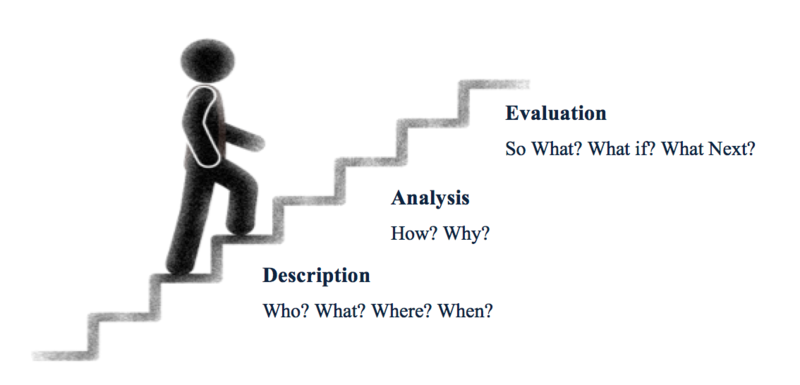e-Learning Ecologies MOOC’s Updates
CRITICAL ANALYSIS
Description: Who? What? Where? When?
Analysis: How? Why?
Evaluation: So What? What If? What Next?
As shown in the diagram, description and simple analysis must precede evaluation, which is where critical analysis lies. With your evaluative skills you must be able to ask yourself what all the description and analysis actually means, what it says about the author or topic and what its implications are.
Critical analysis is associated with a "deep approach" to your learning, which means that you relate new knowledge to what you already know. It also requires the examination of theoretical concepts and ideas; comparing and contrasting issues and perspectives to challenge your own understandings and to speculate and seek out implications. Furthermore, you must be able to distinguish between what is evidence and what is an argument. This involves questioning assumptions, recognising generalisations, and identifying bias in what you see, read and hear. Thinking critically helps you to uncover links across large and diverse bodies of knowledge enabling you to synthesise your own informed ideas.
Questions to ask when critically analysing information
What do I already know?
What do I need to work out?
Is this fact or opinion?
What evidence do they use to back their claim?
What are the stated and unstated assumptions in this information?
Are there other ways we can think about this?
Is it convincing and relevant?
reference
https://www.uow.edu.au/student/learning-co-op/assessments/critical-analysis/


